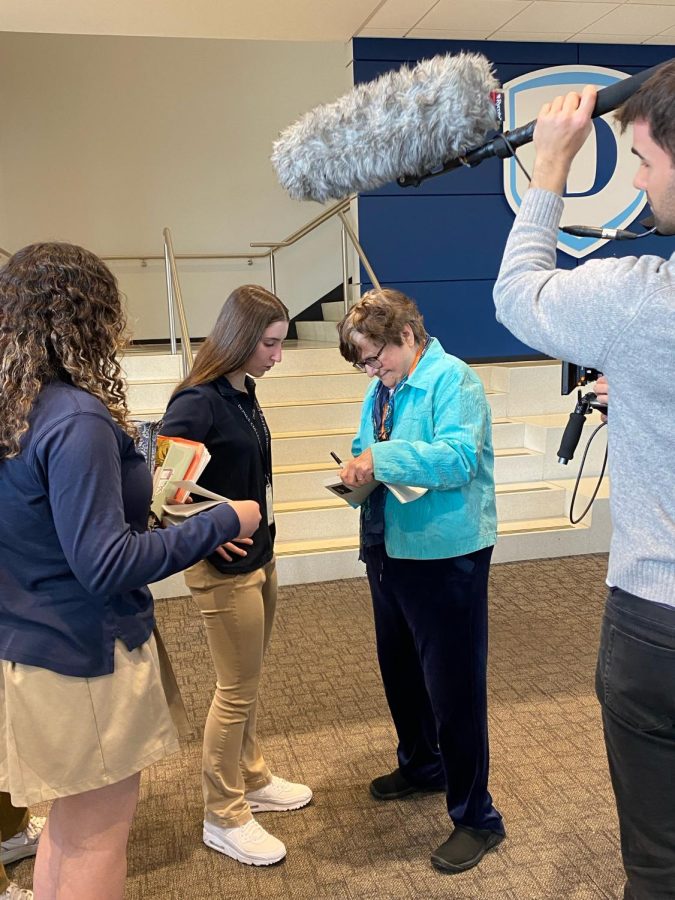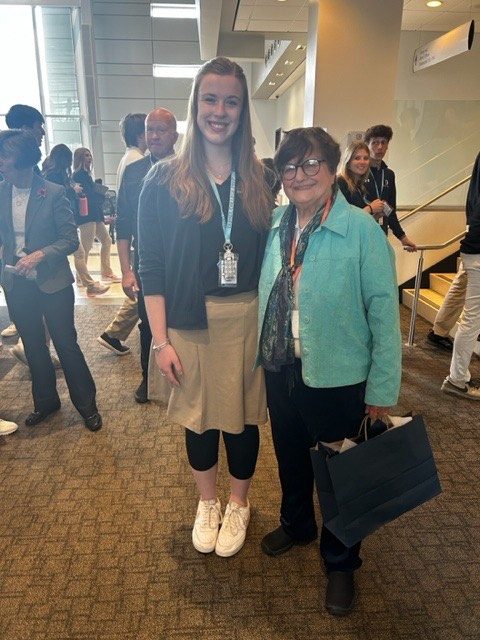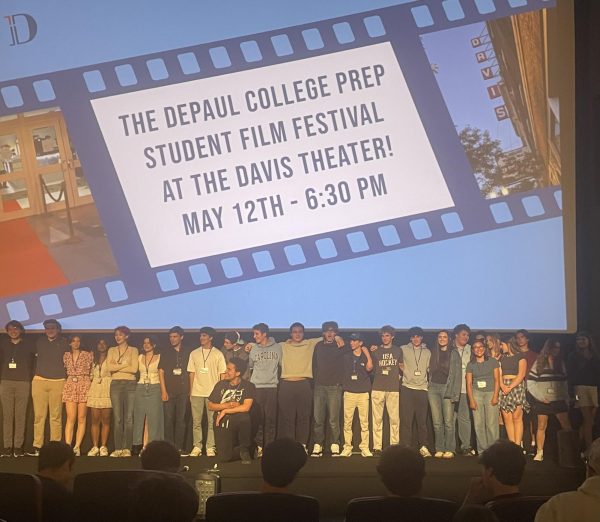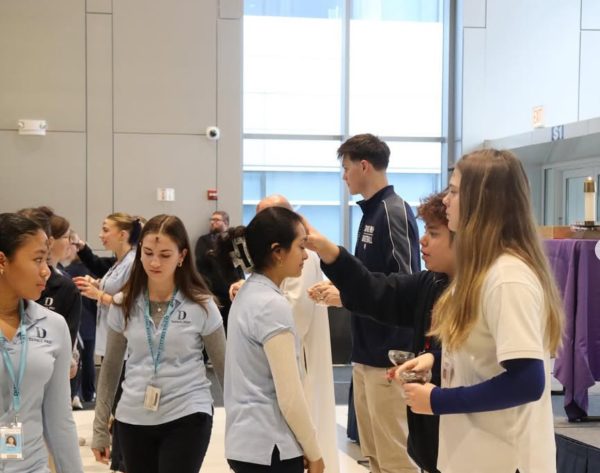Sr. Helen Prejean, renowned death penalty activist, speaks to juniors and seniors
On April 24, 2023, Sister Helen Prejean, longtime activist against the death penalty and author of the book Dead Man Walking, visited DePaul Prep to speak to the Junior and Senior classes. During her talk, she covered a wide range of topics – her background, her work with Elmo Patrick Sonnier (her first encounter with a death row inmate), her goals, and ways that high school students can get involved in work like hers.
Prior to Prejean’s visit, juniors and seniors at DePaul Prep studied her book Dead Man Walking in their Social Justice courses. During her visit, Prejean spoke about her work against the death penalty and its importance. Students were able to make important connections between what they had learned in their recent studies, and the importance of fighting for the human dignity of death row inmates today.
Bernadette Raspante, a Theology teacher and member of the DEI team at DePaul College Prep, noted that it is, “really important for our students to see that people do this stuff that we talk about in class… She connected a lot of the themes from class to the death penalty issue.”
Junior Gabriella Peña agreed, saying, “Sister Helen really showed DePaul College Prep what it means to act with God’s grace, as well as the importance of protecting life. Everyone makes mistakes, but as Sister Helen said, we must focus on restorative justice rather than punishment.”
For other students, like senior Mati Favela, Prejean’s visit helped them better understand their own beliefs.
“I was originally against capital punishment, and [Sister Helen’s visit] made me realize why I was,” Favela said.
Students reacted positively to Prejean’s personable nature, finding her down to earth and very humorous; when asked what keeps her going, she responded with, “prayer and cocaine,” which earned her many laughs from the audience. She explained through laughs that what she actually meant was “faith and community,” the cornerstone of her work.

In 1981, Prejean began writing to death row inmate Elmo Patrick Sonnier. Little did she know, that first letter would change her life. This was the work of what Sister Prejean calls, “sneaky Jesus,” because it didn’t seem obviously significant at the time. Since then, she has become a leading advocate in fighting against the death penalty, a Nobel Peace Prize nominee, the inspiration for an Academy and SAG Award-winning film based on her book Dead Man Walking, and a role model for many people.
Soon after their correspondence began, Prejean decided to visit Sonnier at Angola Prison. When filling out the entrance forms, she ticked the “Spiritual Adviser” box, which would later allow her to attend Sonnier’s execution. Her goal in this attendance was to, “be the face of Christ” for Sonnier, and for him to be able to look at someone who loved him in his final moments.
During a one-on-one interview, Prejean went into more detail about her work.
Before meeting Sonnier, she didn’t know what to expect – would he look mean? Would he be remorseful? When the two met, Prejean was shocked at how ‘human’ he was. Though he had committed atrocious crimes, “…he was a human being. People are more than the worst thing they’ve ever done.”
She elaborated, “You cannot ever identify a person solely with an action.”
Prejean was with Sonnier right until his execution, when he asked God to forgive him for his actions. The remorse and regret shown by Sonnier were unlike the majority of other death row inmates; a guard at Angola Prison described him being unable to eat or sleep because of the guilt that weighed on him.
Millard Farmer, an attorney from Georgia who worked with death row inmates, began representing Sonnier after Prejean got involved. Prejean firmly believed that if Sonnier had had Farmer to represent him at his original trial, he never would have received the death penalty.
One of the major problems with the death penalty that Prejean has focused on is a lack of adequate legal representation for those on trial. When Prejean was working with Sonnier, lawyers with other specialties were often called on to work death penalty cases, with little to no death penalty defense experience. As Prejean brings up in Dead Man Walking, there are few rich people on death row – as they can afford the best legal defense.
For students interested in joining advocacy work like Prejean’s, she suggests The Visiting Room Project as a starting point. It is a great place to start learning about inmates serving life without parole; it gives the opportunity to hear inmates’ stories in their own words.
Looking back on her teenage years Prejean also recalled the impact that nuns at her high school had on her, influencing her choice to become a nun and work for justice.
While in high school, Prejean was influenced by “fantastic nuns… who challenged [her] intellectually, and taught [her] to use [her] mind.” They were significant role models for her in living out their faith. She joined the sisterhood soon after high school, surrounded by fellow nuns who strongly supported her work with death row inmates.
Sister Helen Prejean is an impactful role model – for everyone, but specifically for people who have a fiery passion for Social Justice issues like the death penalty.






